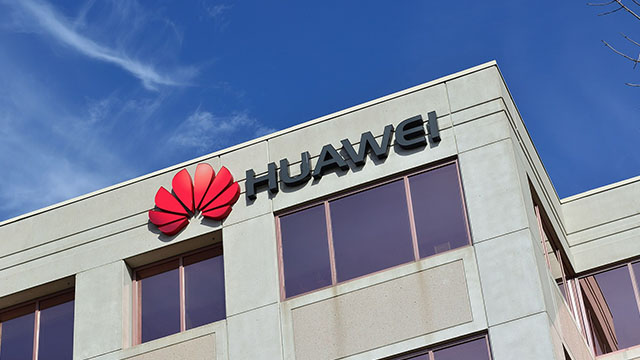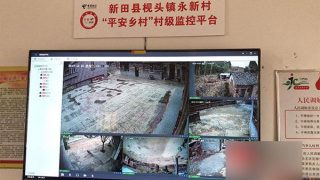A research by Dr. Christopher Balding on the telecommunication giant created by former military Mr. Ren Zhengfei documents the connections that Italian former Foreign Minister Giulio Terzi considers alarming.

by Marco Respinti
It is as simple as this: “After examining a unique dataset of employee-provided work activity at Huawei, it is clear that there is an undeniable relationship between Huawei and the Chinese state, military, and intelligence gathering services.” No one can say now “[…] whether Huawei follows official commands, acts in concert with the state, or seeks to preempt greater control by acting in advance.” However, “[…] there is significant direct evidence of Huawei personnel acting at the direction of Chinese state intelligence with multiple overlapping relationship links through the Chinese state. This should concern governments worried about Chinese intelligence gathering.”
Such is the conclusion of the research on the relationship between key Huawei Technologies Inc. personnel and the Chinese state security services, which has found out that CVs of some Huawei employees show past military and information gathering activities. Titled Huawei Technologies’ Links to Chinese State Security Services, it has been just published by Dr. Christopher Balding, an American Associate Professor of Economics at the Fulbright School of Public Policy and Management of the Fulbright University Vietnam in Ho Chi Minh city. The research, which has been produced with the support of Mr. Samuel Armstrong, Dr. John Hemmings, and Dr. Andrew Foxall of the Henry Jackson Society in London, a neoconservative British foreign policy think tank, may promise more, since is “[…] the first of what will be a series of papers.”
Dr. Balding has analyzed a selection of résumés “[…] taken from a database of CVs that leaked online in 2018 from unsecured Chinese recruitment databases and websites”. That database contains near 600 million CVs, but, as the American professor notes, “[b]ased upon unpublished information, it is quite possible that this number is even higher.”
After making sure to protect the privacy and security of people who intentionally or unintentionally are involved in the production of the research, Dr. Balding states: “There are four points about this data and analysis that are important. First, the data provided is direct, first-hand testimony about Huawei activities, the behavior of its personnel, and its relationships with other Chinese organizations. The data provided comes directly from Huawei employees testifying to their work and activities. Second, Huawei employees effectively confirm the rumored relationship between the Chinese state, military, and intelligence gathering services. Huawei employees confirm the fears of links and acting in concert with the Chinese state. Third, the relationship is clearly systematized given the public references to MSS unit representatives. In other words, this is not simply due to Huawei recruiting employees that used to work in the military by normal chance. Rather, there is a clear institutionalization where the Chinese state and intelligence gathering assets are placed in Huawei within a systemic organization designed to facilitate information flows. Fourth, the institutional relationship between Huawei and Chinese state security services directly contradicts Huawei claims that they have no relationship with these services. It should cause significant concern that Huawei employees provide evidence that directly contradicts public relations statements and claims.”
Vodafone denounced Huawei’s backdoor
It is no breaking news, though. Huawei has been in the spotlight for months. Bitter Winter has reported on how the company serves as a repressive domestic tool and on the threat that it poses to all the world, all in the framework of the “digital despotism” of “[…] the perfect high-tech totalitarian state” ‒ as it is described by Ms. Judith Bergman, Distinguished Senior Fellow at the Gatestone Institute (an American conservative think tank focusing on the Middle East and based in New York), ‒ while one of the most comprehensive and informative reports on Huawei remains the one published in December 2018 by The Epoch Times.
On the connection with the Chinese military apparatus, a few weeks ago, the multinational media firm Bloomberg published a piece saying that Huawei “[…] employees have collaborated on research projects with Chinese armed forces personnel, indicating closer ties to the country’s military than previously acknowledged by the smartphone and networking powerhouse. Over the past decade, Huawei workers have teamed with members of various organs of the People’s Liberation Army on at least 10 research endeavors spanning artificial intelligence to radio communications. They include a joint effort with the investigative branch of the Central Military Commission ‒ the armed forces’ supreme body ‒ to extract and classify emotions in online video comments, and an initiative with the elite National University of Defense Technology to explore ways of collecting and analyzing satellite images and geographical coordinates.” The National University of Defense Technology is the top military academy and research-type, key national university of the People’s Liberation Army, located in Changsha, Hunan Province, and put under the direct leadership of China’s Central Military Commission. Now, the detailed research by Dr. Balding confirms and supports these claims with evidence.
Moreover, in April, “Vodafone […] found vulnerabilities going back years with equipment supplied by […] Huawei for the carrier’s Italian business.” In fact, “Europe’s biggest phone company identified hidden backdoors in the software that could have given Huawei unauthorized access to the carrier’s fixed-line network in Italy, a system that provides internet service to millions of homes and businesses, according to Vodafone’s security briefing documents from 2009 and 2011 seen by Bloomberg, as well as people involved in the situation.”
Of course, Chinese officials deny or downplay all; but it’s a laughable attempt. These are the same Chinese officials that are trying to deny or diminish the staggering situation in Xinjiang, where up to 3 million people, according to sources, are detained in transformation through education camps, and those who aren’t, live a nightmare life of strict surveillance and total control.
Chinese officials also try to say that Huawei is not connected to the state, but should we trust them? After all, these are the same Chinese officials who have been attempting for years to deny the horrendous practice of organ harvesting and now, after having to admit it, deny any collaboration with the state. As if it were possible to move the massive organ transplantation and trafficking machine in a totally controlled country like China without the state noticing it.
Who Owns Huawei?
However, this is a critical topic. That is why, in April, Dr. Balding published another relevant and fascinating research, under the revealing title Who Owns Huawei? , where he notes: “As a matter for formal voting power, the Huawei group is controlled by Huawei Holding TUC. Thus, it is critical to understand who controls decision-making by Huawei Holding TUC.”
In an attempt to find that out, he then continues, “[t]here are still some obvious facts.” First, “[…] the formal structure takes no account of Huawei Holding TUC’s apparent status as a trade union organization governed by the Trade Union Law and with concomitant political and organizational responsibilities.” Second, “[…] the ‘shares’ held by employees are only virtual shares; they are an employee profit-sharing device” and “[…] the voting ‘rights’” of employees in important decision-making processes of the company “[…] can be abrogated.” Third, “[…] it does not appear that the holders of the virtual shares […] have any right to undistributed earnings.”
Thus, “[i]f Huawei Holding is in fact controlled by a trade union committee, then given the way such bodies are supposed to operate in China, it makes sense to think of it as state-controlled and even state-owned.” Adding that “[i]f the formal picture does not represent reality, then Huawei, which controls the relevant information, can clarify this,” the American scholar concludes: “Finally, although we may not know exactly who does own Huawei in a realistic sense, we can be pretty sure the employees do not. They do not own equity or property rights in any single Huawei entity or the group of Huawei entities. They appear to have at most some kind of contractual claim on profits (possibly subject to the discretion of whoever the contract counterparty is‒Huawei Tech, Huawei Holding, or Huawei Holding TUC), but have no claim on the residual. They have no governance or control rights over any single Huawei entity or the group of Huawei entities. In sum, Huawei is neither employee-owned nor employee-governed, and the question remains as to who actually does govern or control Huawei other than Ren Zhengfei, the holder of a 1% equity interest in a holding company that is the sole shareholder of the Huawei operating entity.”
Valuable comments on Dr. Balding’s research have been uttered by Ambassador Giulio Terzi di Sant’Agata, former Italian Minister of Foreign Affairs and now president of Cybaze, a top cybersecurity company. In an interview for Formiche, a magazine of analyses and comments, he says that the American scholar authoritatively confirms leaks and rumors, while all should remember that Huawei’ founder, Mr. Ren Zhengfei, is himself a former military official. He also adds that “[…] the 2017 [Chinese] law on national security compels all [Chinese] high-tech companies to cooperate with [Chinese] security apparatuses,” a fact that makes clear that Huawei “[…] is entirely part of a dual- use system” combining “civil activities, strategic objectives and military methodologies.”
To Bitter Winter (that he holds in high esteem as a truthful and reliable source of primary information) Ambassador Terzi, who considers human rights and especially religious liberty a top moral and political priority, adds: “People in the West just care about economic profits. So, when Huawei offers an internet router, which costs ten times less than the average market price of its Western competitors, they simply buy it with no other consideration. But the not small detail is that that router is, as it has been proved, a way to grant China officials the personal data of users. Basically, medium-range economic interests are pushing the West to ignore the whole picture: we are selling our security and the common good.”
Source:BITTER WINTER/Marco Respinti



